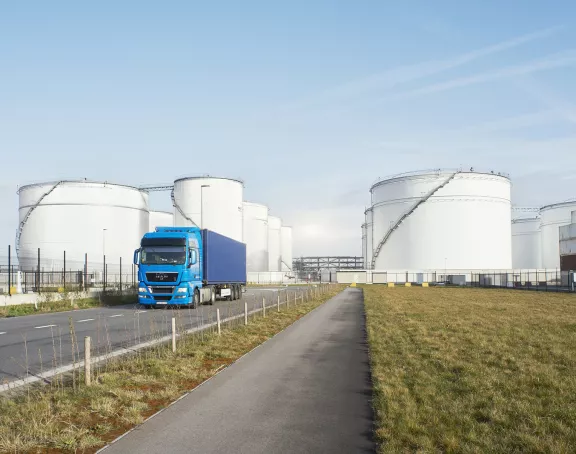Dutch Supreme Court refers questions to CJEU in trucks case
On 20 June 2025, the Supreme Court of the Netherlands rendered a judgment on preliminary questions to be submitted to the Court of Justice of the European Union ("CJEU"). These questions mainly relate to the interpretation of a competition law concept in national civil law cases in the context of applicable law and the scope and interpretation of the Rome II Regulation.
The Supreme Court rendered its decision of 20 June 2025 (ECLI:NL:HR:2025:945) in antitrust follow-on damages litigation that followed the European Commission decisions of 2016 and 2017 (case AT.39824), in which the European Commission imposed fines totalling to approximately 3.81 billion euro on several truck manufacturers for competition law infringements.
In the follow-on damages proceedings, several thousands of claimants claim compensation for damages allegedly suffered as a result of the competition law infringements. Most of the claimants bundled their alleged damages claims in a number of litigation vehicles. The Amsterdam District Court tried to join the cases into four groups of combined cases, each concerning a maximum of approximately 200,000 trucks. In addition to the four groups of combined cases, there are a number of separate proceedings pending.
Given the cross-border nature of the cases, there has been legal debate on the applicable law governing these follow-on damage claims. A central point of discussion in this debate is whether one or more governing laws are or could be applicable to the claimants' alleged claims. In the second group of combined cases, this debate resulted in the Amsterdam District Court submitting preliminary questions to the Supreme Court of the Netherlands in its interim judgment of 8 November 2023 (ECLI:NL:RBAMS:2023:7093). The Amsterdam District Court considered that further guidance from the Dutch Supreme Court was necessary about the manner in which Article 4 of the Dutch Conflict of Law Acts (Wet conflictenrecht onrechtmatige daad) and Article 6 under 3 of the Rome II regulation (Reg. (EC) 864/2007) must be applied and how the applicable law should be determined in accordance with those articles. In addition, the Amsterdam District Court requested guidance – in the context of applicable law – on how to apply the public competition law notion of a 'single and continuous infringement' ("SCI") in national civil law cases, specifically whether this competition law concept should be interpreted under Dutch law as: (i) a (single and continuous) unlawful act giving rise to separate claims for damages per truck transaction, or (ii) a (single and continuous) damaging event resulting in one damages claim per affected party, consisting of various items of damage.
In its referral judgment, the Amsterdam District Court emphasized the importance of clarification by the Supreme Court of the Netherlands, given the vast array of claims brought by a large number of claimants in the many truck cases.
In its judgment of 21 March 2025 (ECLI:NL:HR:2025:414), the Supreme Court of the Netherlands expressed its intention to – in turn –submit preliminary questions to the CJEU in light of the EU-law aspects of the Amsterdam District Court's questions (i.e., the correct interpretation of the SCI in national civil law cases in the context of applicable law and the correct application of Article 6 under 3 of the Rome II Regulation). The Supreme Court allowed the parties to comment on its intention to refer questions to the CJEU for a preliminary ruling and on the wording of the proposed questions.
Finally, in its decision of 20 June 2025, the Supreme Court of the Netherlands decided to refer questions to the CJEU and formulated the questions that it will submit to the CJEU. The questions mainly concern the interpretation of the competition law concept "SCI" in national civil law cases in the context of applicable law and the scope and interpretation of the Rome II Regulation. In short, the Supreme Court's questions address four key areas:
- whether EU law requires a SCI (Article 101 TFEU) to qualify as one single claim for damages per affected party, consisting of different damage items, or as separate claims for damages per truck transaction;
- the temporal scope of the Rome II Regulation (Article 31);
- the interpretation of the market rule of Article 6(3)(a) of the Rome II Regulation; and
- the conditions for an unilateral choice of law under Article 6 (3)(b) of the Rome II Regulation.
The full questions submitted by the Supreme Court of the Netherlands can be read here.
The Supreme Court has decided to stay the proceedings pending the CJEU's decision on the preliminary questions. Once the CJEU has answered the preliminary questions, the Supreme Court is expected to resume the proceedings by responding to the questions submitted by the Amsterdam District Court in line with the CJEU's guidance. Thereafter, the Supreme Court is expected to refer the proceedings back to the Amsterdam District Court for the continuation of the proceedings.



